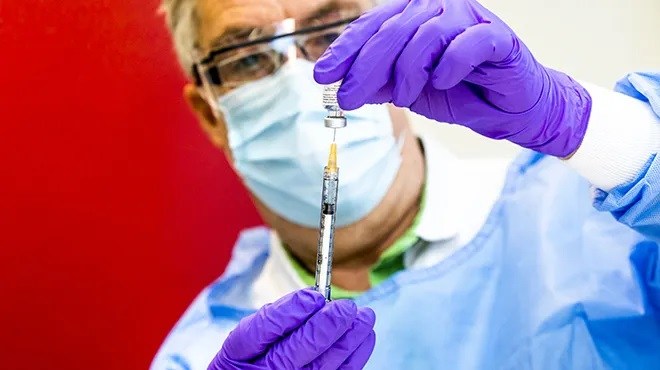Ireland has become the latest in a line of countries to suspend the use of the AstraZeneca vaccine against Covid-19, following reports of recipients suffering from blood clots.
“Following new information we received from the Norwegian Medicines Agency on Saturday and after a meeting with the Health Products Regulatory Authority, the National Immunization Advisory Committee has recommended that the administration of COVID-19 vaccine AstraZeneca be temporarily delayed from today,” said Dr. Ronan Glynn, Ireland's Chief Medical Officer.
“It has not been concluded that there is any link between the Covid-19 vaccine AstraZeneca and these cases,” he said.
“However, acting on the precautionary principal, and pending receipt of further information, the NIAC has recommended the temporary deferral of the Covid-19 vaccine AstraZeneca vaccination programme in Ireland.”
Meanwhile in Belgium, health minister Frank Vandenbroucke said there was no reason to suspend use of the vaccine on the basis of reports of blood clots, or thrombosis.
On Friday the vaccination task force backed that view.
“Up to 10 March, 30 cases of thrombosis were reported to the European Medicines Agency (EMA) following an injection of AstraZeneca, out of a total of five million vaccines administered,” said Pierre Van Damme, a member of the task force.
Yesterday, it was confirmed that two cases of thrombosis had been reported after vaccination with AstraZeneca in Belgium. The authorities maintain there is no proof for now of a causal link between the vaccine and the thromboses.
Ireland now joins Austria, Bulgaria, Denmark, Iceland, Italy and Norway in having suspended use of the AstraZeneca vaccine. There, too, the authorities admit there is no causal link shown as yet.
However they prefer to act according to the precautionary principle mentioned by Dr Glynn in Ireland, which states that where there is the possibility of harm, the governing principle should be one of caution, taking time to pause and review the situation before moving on.
On a practical level, however, any suspension of use of the AstraZeneca vaccine would make a bad situation even worse, as the company has informed the EU that it will deliver only half of the promised number of doses in the second quarter, following shortages in the first. For Belgium alone, that means fewer than half of the 4.6 million doses expected.
Alan Hope
The Brussels Times

